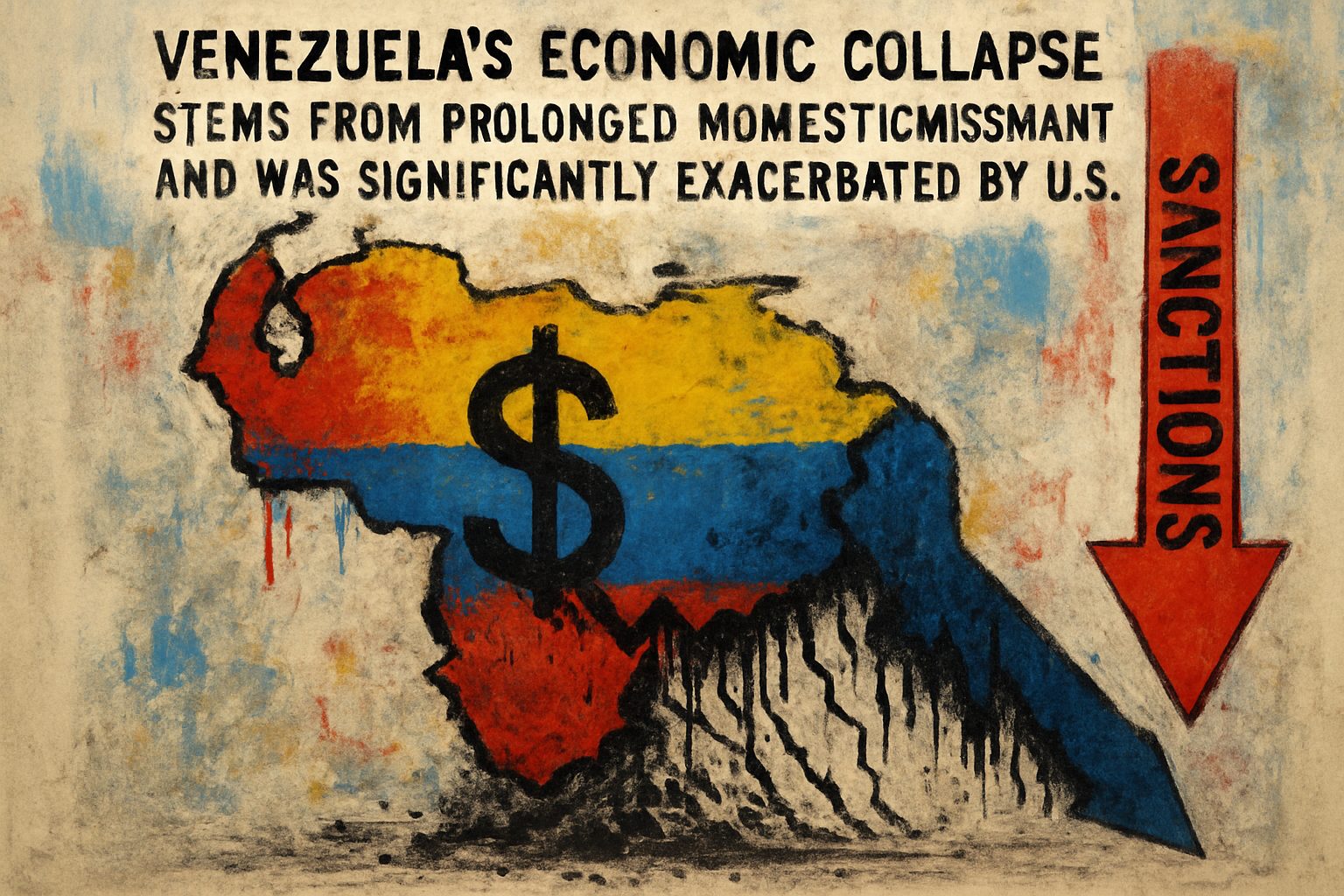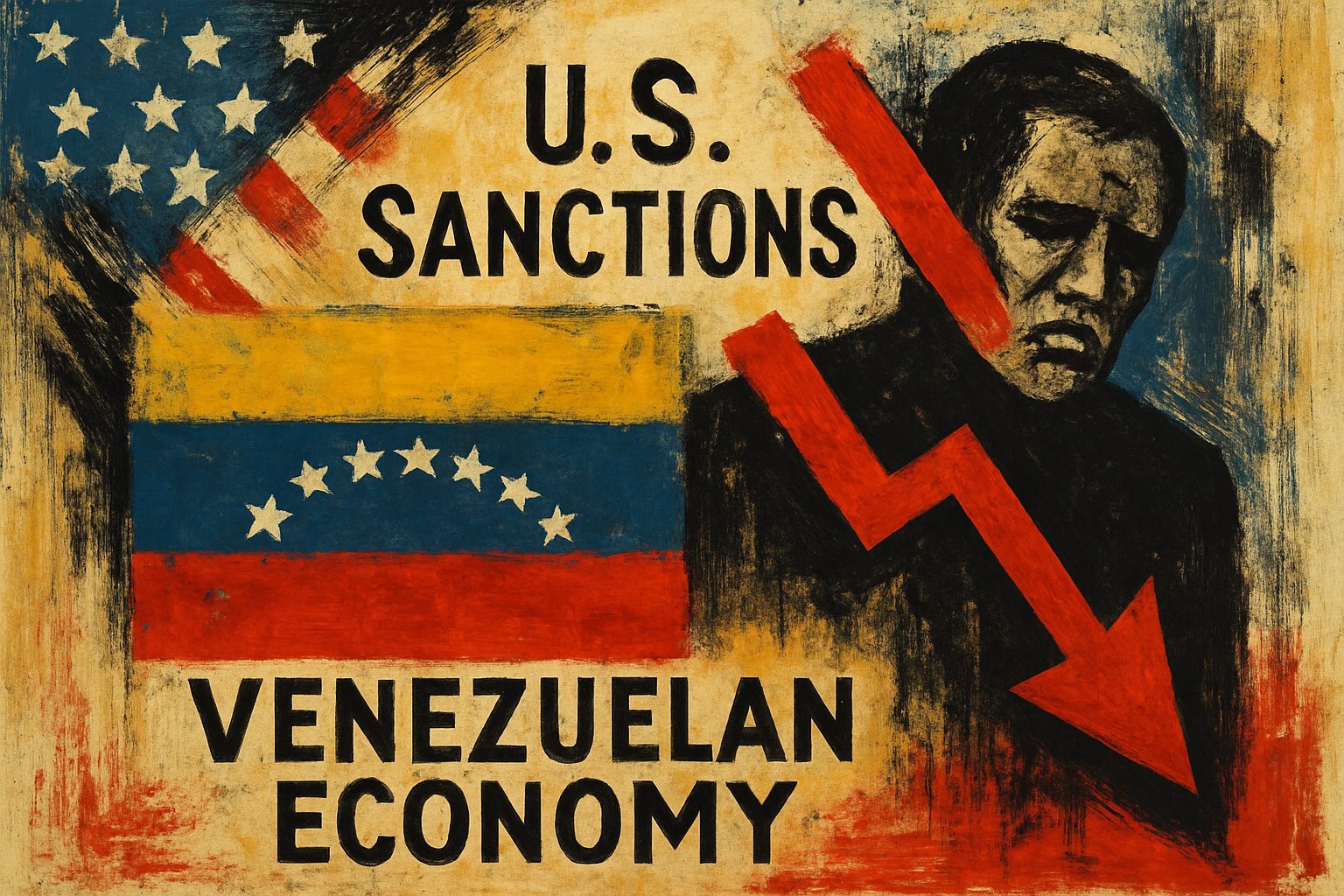
Venezuela’s Economic Collapse: How US Sanctions Deepened a Crisis Born of Mismanagement
Venezuela’s economic freefall is a tale of two culprits: decades of domestic policy failures and the tightening grip of US sanctions. This analysis unpacks how external pressures worsened an already dire situation, offering crucial insights for policymakers and global observers alike.
Venezuela’s economic collapse stems from prolonged domestic mismanagement and was significantly exacerbated by U.S. sanctions. According to a UN special rapporteur, while the severe crisis predated broad sanctions, newer measures have deepened humanitarian suffering. The Washington Office on Latin America attributes over half of Venezuela’s economic contraction to policies like nationalizations, hyperinflationary spending, and corruption, noting sanctions further constrained recovery.
Practical impact: Sanctions limited oil revenue and access to global markets, intensifying shortages and inflation. This complex interplay underscores that resolving the crisis requires addressing both internal governance and external economic pressures.
Next steps: Future analyses should differentiate between pre-existing vulnerabilities and sanction-induced effects to inform targeted policy responses.
Venezuela’s economic collapse stems from long-standing domestic mismanagement but has been severely exacerbated by U.S. sanctions. Pre-existing issues—such as widespread nationalizations, hyperinflation, price controls, and corruption—had already crippled the economy prior to sanctions, with GDP contracting by half under the Maduro administration [source]. However, sectoral sanctions, particularly on oil exports and financial transactions, deepened the crisis by restricting Venezuela’s primary source of foreign revenue and impeding access to global markets [source]. UN Special Rapporteur Alena Douhan notes that while the crisis predates sanctions, newer measures have worsened humanitarian conditions and hindered recovery efforts [source].
Synthesis integrates assertions, evidence, and commentary to construct cohesive arguments rather than merely summarizing sources Synthesizing Research. A structured approach—such as the five-step prewriting method—helps identify connections and overarching themes across literature Step-by-Step Synthesis. This process enhances critical analysis and positions new research within existing discourse, making synthesized content comprehensive and contextually grounded Simply Psychology. Practical application: Apply synthesis to literature reviews or evidence-based writing to improve clarity, depth, and scholarly rigor.

Vyftec – Economic Research & Analysis
At Vyftec, we specialize in transforming complex data into clear, actionable insights through custom web applications and dashboards. For your project on Venezuela’s economy under US sanctions, we can develop a secure, interactive platform for research and analysis—leveraging our expertise in data visualization (Plotly.js, Chart.js), automation, and API integrations to aggregate and present economic indicators, historical trends, and real-time data efficiently. Our agile approach ensures a tailored solution that meets rigorous analytical standards.
Combining Swiss precision with cost-effective scalability, we deliver robust, secure digital tools that empower decision-making. Let’s discuss how we can support your research with a high-performance, tailored application. Reach out to explore collaboration.
📧 damian@vyftec.com | 💬 WhatsApp


